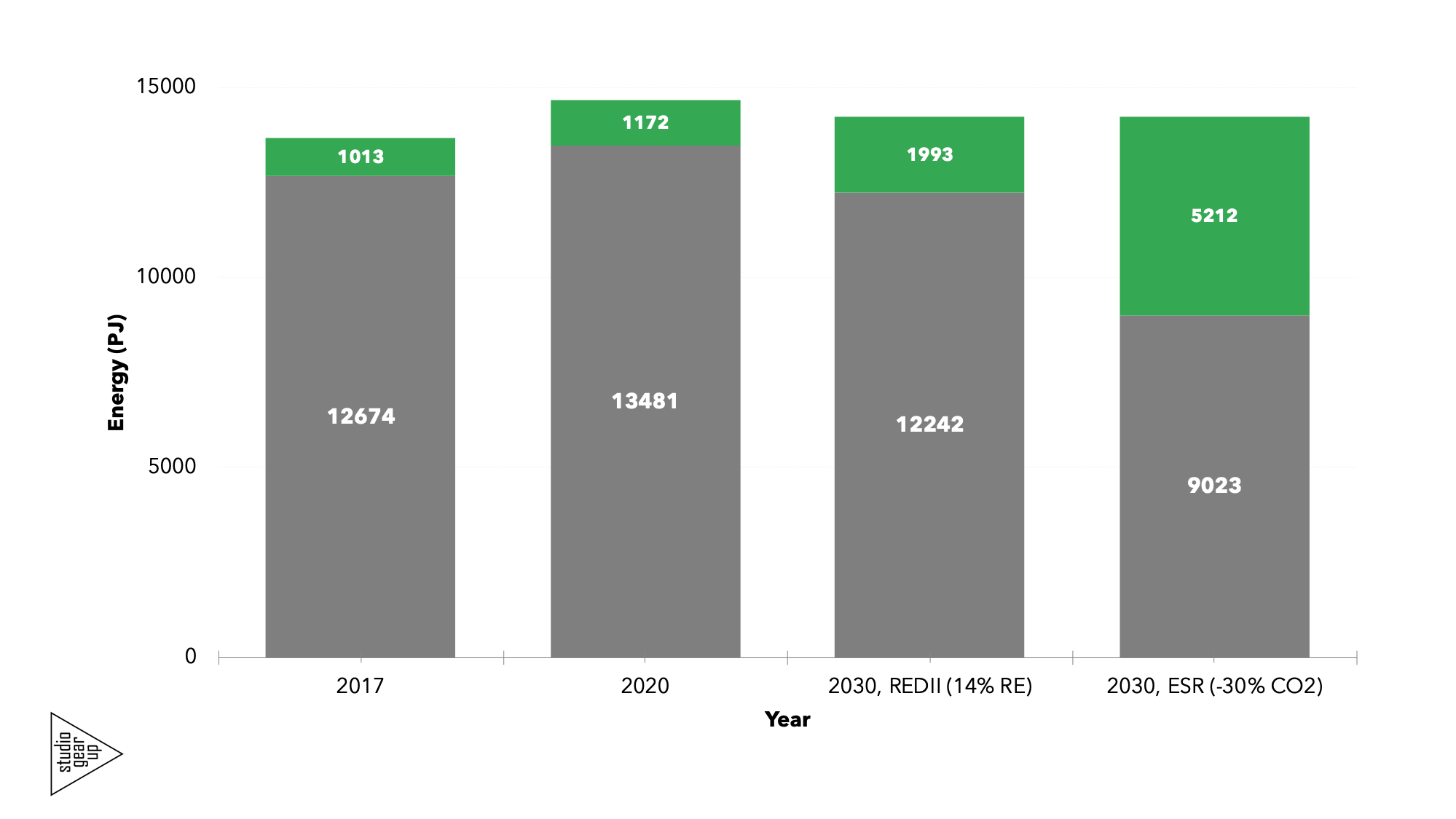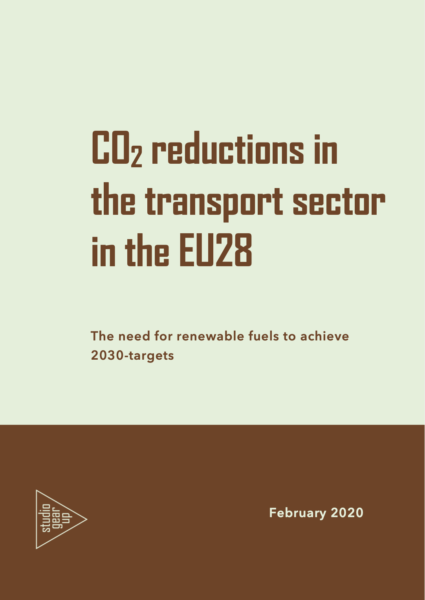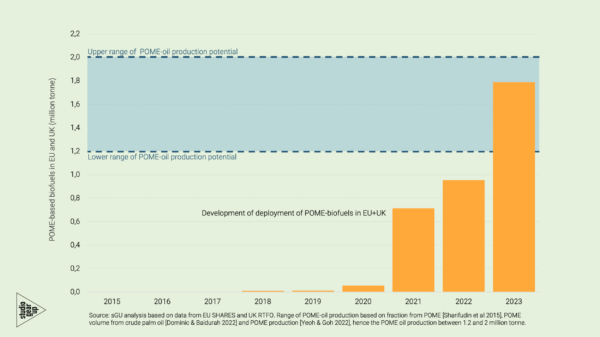To achieve the 2030 CO2 emission reduction targets that are in line with the Effort Sharing Regulation (ESR), fossil energy use in transport will have to be capped to a level of maximum 9 thousand PJ, nearly 30% lower than the 2017 amount of 12,7 thousand PJ. The current targets for the share of renewable fuels in the 2021-2030 Renewable Energy Directive are not sufficient to achieve these ESR targets.
The share of renewable energy in transport will have to grow significantly, from 1 thousand to more than 5 thousand PJ. Our analysis shows that in the next decade the majority of this renewable energy consists of renewable fuels, to a lesser extent renewable electricity and last but not least by improved energy efficiency performance. The share or renewable energy in transport needs to increase from 7,4% (which in fact includes double counting of certain biofuels) to a physical share of 37% (without any double counting)

The available measures to keep the use of fossil fuels under this level of 9 thousand PJ consist of:
- increasing the share of electric mobility,
- increased energy efficiency (and hence less total energy use),
- enable modal shift in personal mobility to less carbon and energy intense options (public transport, use of bicycles)
- increased use of renewable fuels (in particle in the existing vehicle fleet and in heavier duty segments.
The report with the elaborate analysis is found here. The report has been written for DG Energy of the European Commission.



